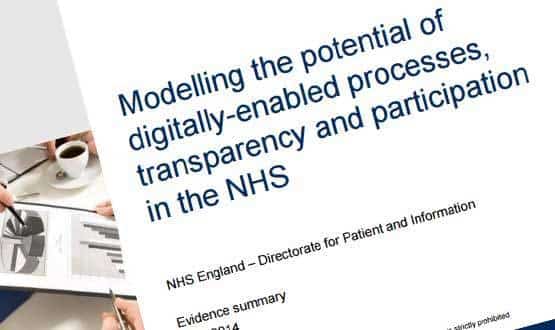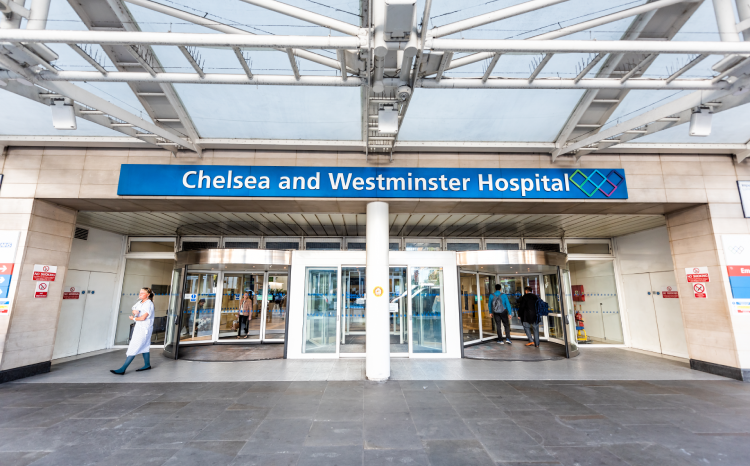NHS IT needs £8 billion – McKinsey
- 10 November 2015

The NHS needs to spend an additional £7.2 billion to £8.3 billion on digital technology over the next five years in order to achieve savings of between £8.3 billion and £13.7 billion, according to a report by management consultancy firm McKinsey.
If the McKinsey investment case was funded and the projected savings were subsequently fully achieved, the report suggests they could account for up to a quarter of the £30 billion shortfall in NHS finances projected by 2020-21.
A copy of a PowerPoint presentation of the report, which underpins NHS England’s bid to the Treasury spending review, has been sent to Digital Health News by pressure group Spinwatch, which obtained it via a Freedom of Information Act request.
It sets out the basis on which NHS England’s director of patients and information, Tim Kelsey, told the National Information Board earlier this year that investment in electronic health records, digital services and data could save the NHS between £8.3 billion and £13.7 billion by 2020-21.
It also sets out the basis on which the commissioning board has made a bid of between £3.3 billion and £5.6 billion to the spending review, which is due to report on 25 November.
NHS England’s director of digital technology, Beverley Bryant, told EHI Live 2015 last week that her team was locked in negotiations with the Treasury and that, if the bid was successful, it was likely some of the money would be distributed through a further tech fund, with an element of ‘meaningful use’ attached.
The McKinsey report, which is dated April 2014, says the background to its work is the NHS’ need to close the gap between essentially flat fund funding and rising costs and demand that could reach £30 billion by 2020-21.
NHS England subsequently issued the ‘Five Year Forward View’ report, which argued that £22 billion could be found through investment in prevention and new ways of working; while the Conservatives made an election pledge to spend an additional £8 billion on the NHS over the course of this Parliament.
The McKinsey report says that savings of between £3.2 and £3.9 billion can be found in the acute sector by investing in electronic health records, in what it calls ‘digital lean’ systems such as patient flow management and barcoding, and in systems to improve quality, such as vital sign tracking.
The further savings would come from productivity improvements resulting from investment in community, mental health and primary care services, integrated working, and digital channels for patient access and monitoring.
The report says the NHS would need to provide total upfront investment of £5 billion to £5.2 billion to secure these savings. In addition, it estimates that it would need to spend £2.3 billion to £3 billion on training, adoption and running costs; taking the total bill to £7.3 billion to £8.2 billion.
‘Modelling the potential of digitally-enabled processes, transparency and participation in the NHS’ breaks down the upfront investment by sector.
It says that for acute care, around £2 billion to £2.1 billion is required; for primary care £400 million; for community care £500 million to £600 million; and for mental health £400 million. In addition, around £100 million is needed in integrated care and screening and £500 million in primary prevention.
McKinsey applies a red, amber, green confidence scale to the savings this investment may achieve. It applies an amber rating to all areas other than integrated care and screening, which is rated at green.
No specific evidence for the savings is available in the presentation, while some of the estimated economic benefits mentioned come with a high level of uncertainty.
For example, in acute care the report says that remote monitoring equipment “has the potential” to reduce length of stay, while in primary care the use of teleconsultation, web messaging and other means to avoid face-to-face GP consultations “may lead to substantial benefits.”
Also in primary care, the summary says: “While it is envisaged that data transparency may have benefits for patient care direct evidence for economic impact has not been found.”
In primary prevention it says that there is “relative scarcity of longitudinal studies linking digital programmes to encourage healthy living to long term impact” and in integrated care and screening it described the evidence for telehealth as “mixed”.
In an October interview with Digital Health News, Kelsey, a former McKinsey consultant, said the numbers he presented to the NIB were a “very, very first estimate” and that a lot of work has since been done to refine them.
Digital Health News submitted an FOI request to see the entire McKinsey report earlier this year, but was turned down on the grounds that it relates to the formulation or development of government policy. Digital Health News has appealed the decision.
Learn more about McKinsey's recommendations for digital adoption in News and read Digital Health editor Jon Hoeksma's opinion on the McKinsey report and its implications in features.




